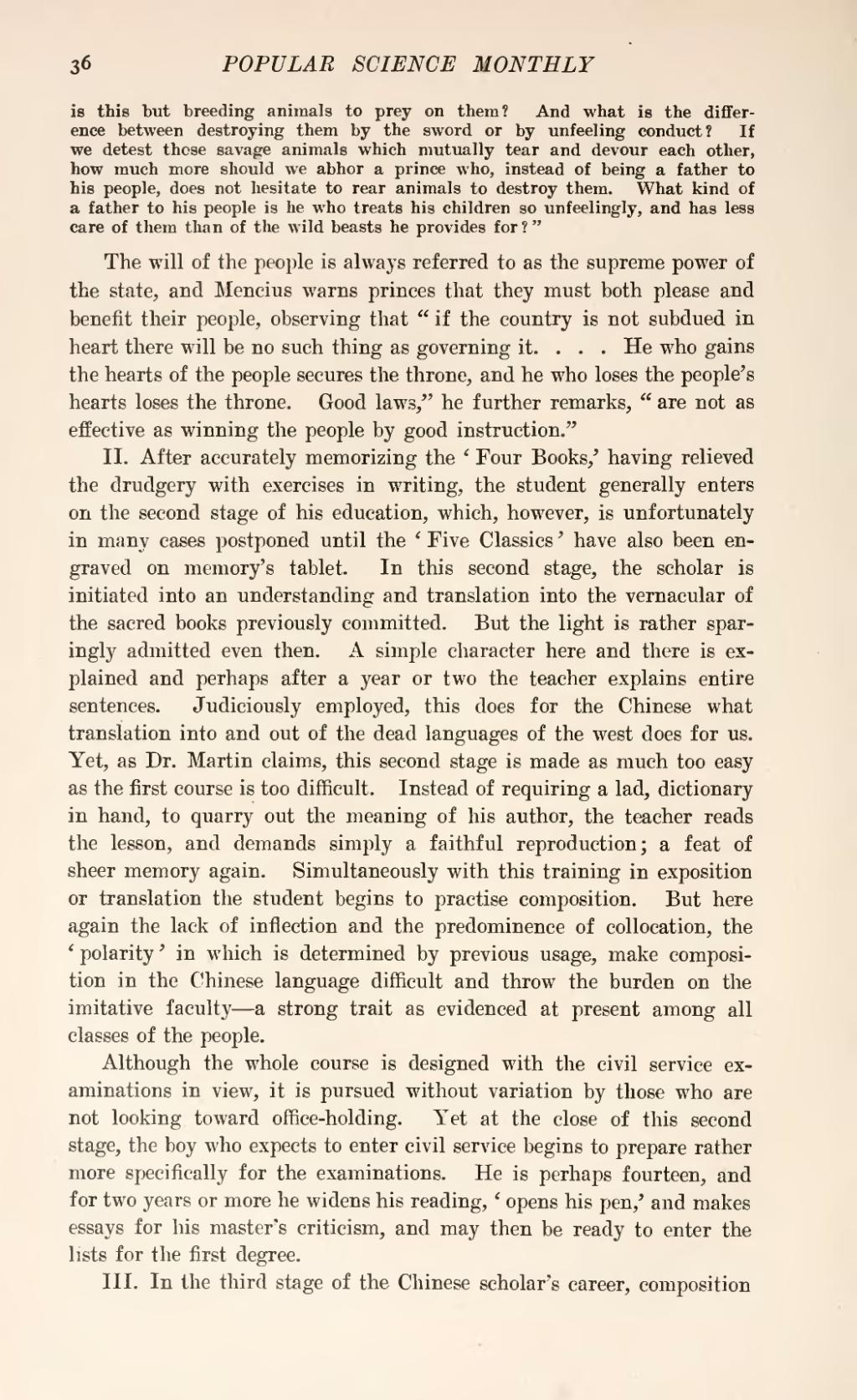The will of the people is always referred to as the supreme power of the state, and Mencius warns princes that they must both please and benefit their people, observing that "if the country is not subdued in heart there will be no such thing as governing it. . . . He who gains the hearts of the people secures the throne, and he who loses the people's hearts loses the throne. Good laws," he further remarks, "are not as effective as winning the people by good instruction."
II. After accurately memorizing the 'Four Books,' having relieved the drudgery with exercises in writing, the student generally enters on the second stage of his education, which, however, is unfortunately in many cases postponed until the 'Five Classics' have also been engraved on memory's tablet. In this second stage, the scholar is initiated into an understanding and translation into the vernacular of the sacred books previously committed. But the light is rather sparingly admitted even then. A simple character here and there is explained and perhaps after a year or two the teacher explains entire sentences. Judiciously employed, this does for the Chinese what translation into and out of the dead languages of the west does for us. Yet, as Dr. Martin claims, this second stage is made as much too easy as the first course is too difficult. Instead of requiring a lad, dictionary in hand, to quarry out the meaning of his author, the teacher reads the lesson, and demands simply a faithful reproduction; a feat of sheer memory again. Simultaneously with this training in exposition or translation the student begins to practise composition. But here again the lack of inflection and the predominence of collocation, the 'polarity' in which is determined by previous usage, make composition in the Chinese language difficult and throw the burden on the imitative faculty—a strong trait as evidenced at present among all classes of the people.
Although the whole course is designed with the civil service examinations in view, it is pursued without variation by those who are not looking toward office-holding. Yet at the close of this second stage, the boy who expects to enter civil service begins to prepare rather more specifically for the examinations. He is perhaps fourteen, and for two years or more he widens his reading, 'opens his pen,' and makes essays for his master's criticism, and may then be ready to enter the lists for the first degree.
III. In the third stage of the Chinese scholar's career, composition
